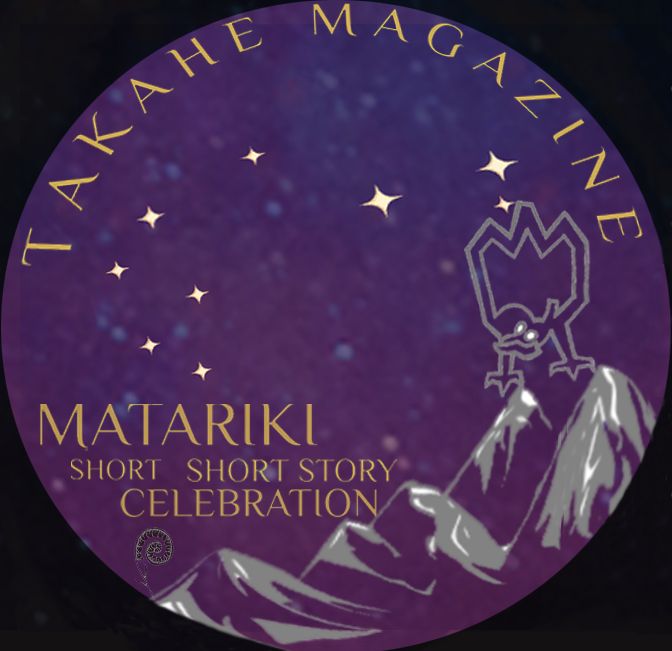Matariki Girl

She tries very hard not to stomp her feet. Every footstep makes crackles in what seems like silence. But she’s eager to escape the snoring and the old man who has talked all through the night. His kōrero has made her restless and resolute, as she steps further away from the whare, seeking a sunrise.
She’s slipped off her shoes just to be closer to Papa. They hang from her hands by the laces, clunking together as she runs. A snap, a crunch, a crush of leaves under her toes announces her obvious arrival in the forest. She’s going to Kaikou, determined to sink under its solitude. Her pathway is easy, and she is led, in subconscious motion, towards the awa.
Slowly, the tunes in her head from the long days of waiata and mōteatea are replaced by a small dawn chorus, the gentle lull of a bird’s morning song. Tāwhirimātea strums at leaves, sending koukou to bed, propelling the woman towards a clearing and to the muddy steps of the water’s edge.
Fresh from its run from Hikurangi, she can smell the river earthy and ancient and cold. The lemony scent of kawakawa releasing in the early gentle rays of Tamanuiterā. Oblivious of the temperature or of tuna, of sharp rocks and of time, she strips to her skin and sinks in.
The sting of her dive, the cloudy dark water, the risk of her action — kickstarts a reset in time. Under water, under Puanga, she is renewed and recharged and ready to dig the kūmara.
Aine Whelan-Kopa is of Ngāpuhi, Ngāti Hine, and Te Hikutu o Hokianga. Aine grew up with an astronomer father and an observatory in her backyard. Learning about Matariki and the cosmos has been a lifelong fascination.